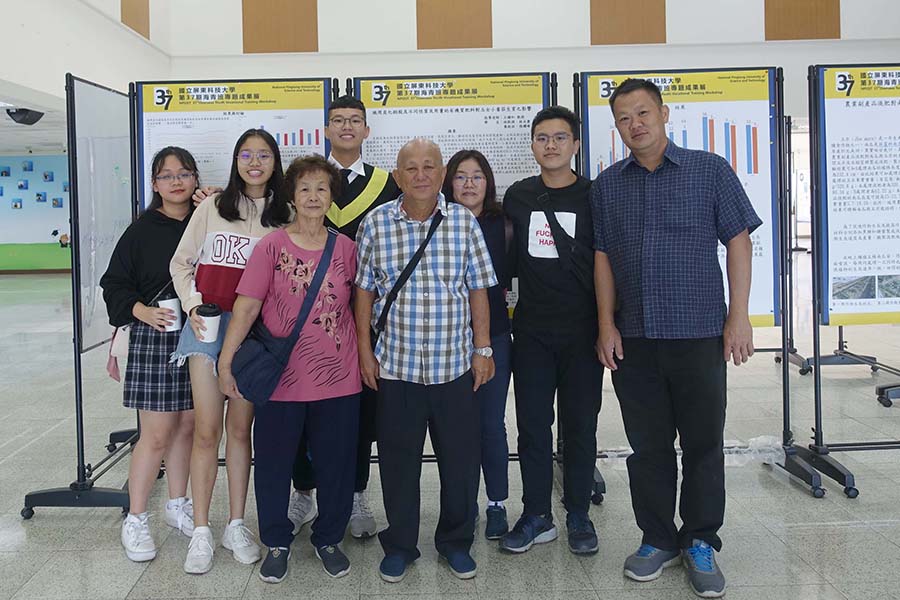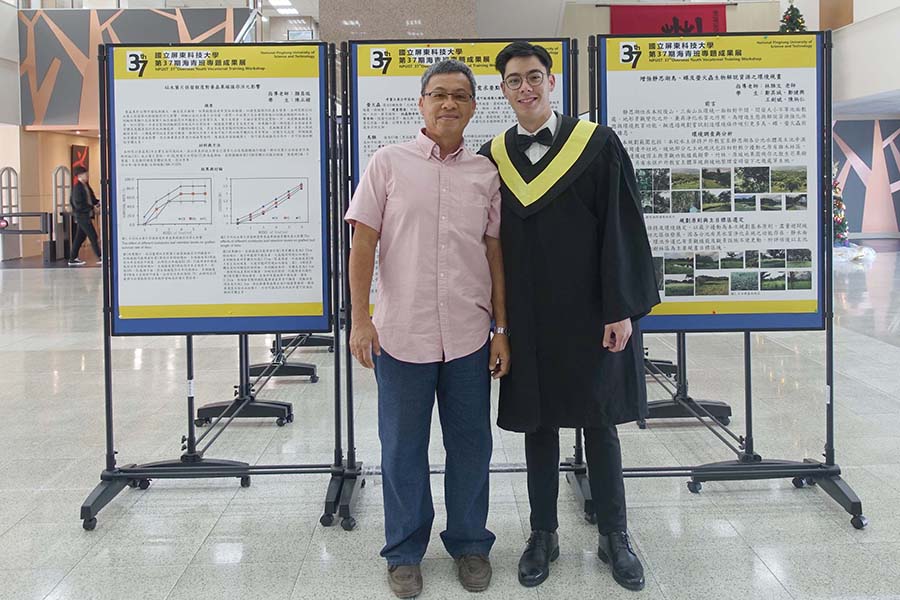On December 24th 2019, a graduation ceremony was held for the 37th Class of the Overseas Youth Vocational Training Workshop at the NPUST Library and International Convention Center together with an exhibition of research results, which was on display in the first floor entrance hall. The 18 students from Malaysia and Indonesia who graduated from the program were presented with certificates of graduation by NPUST President Chang-Hsien Tai in front a group of around 50 friends and family members who had travelled to Taiwan to witness the occasion.
The program offered for the 37th Class was oriented towards “plant industry and precision tropical agricultural sciences”. In addition to classroom work, the two-year practical training school provided students with a great deal of hands-on training and practice, with frequent visits to a variety of agricultural organizations in Taiwan, including nurseries, vegetable farms, orchards, leisure farms, and animal husbandry facilities. With the professional skills the students acquired, they should be well equipped to immediately enter the job market and make positive contributions to local industries when they return home.
In his graduation address, class valedictorian Teh Chyi Cherng reminisced about the first day of class, saying it “opened a door in my life that would take me into the world of agriculture—at that time, I had little understanding of the field, but at the present we can already see very fruitful progress”. Teh’s remarks captured the attention of the audience and left the parents feeling a sense of pride for their children’s accomplishments. Among those graduating, some have plans to pursue more advanced levels of education while others will head straight to the job sector. Whatever the choice may be, the training workshop has provided them with a stable footing for their next moves.
In the future, NPUST will continue to coordinate with the Overseas Community Affairs Council to host the Overseas Youth Vocational Training School with programs designed to meet specific local needs—equipping students with practical skills which will allow them to make professional contributions to industries in their local communities.





